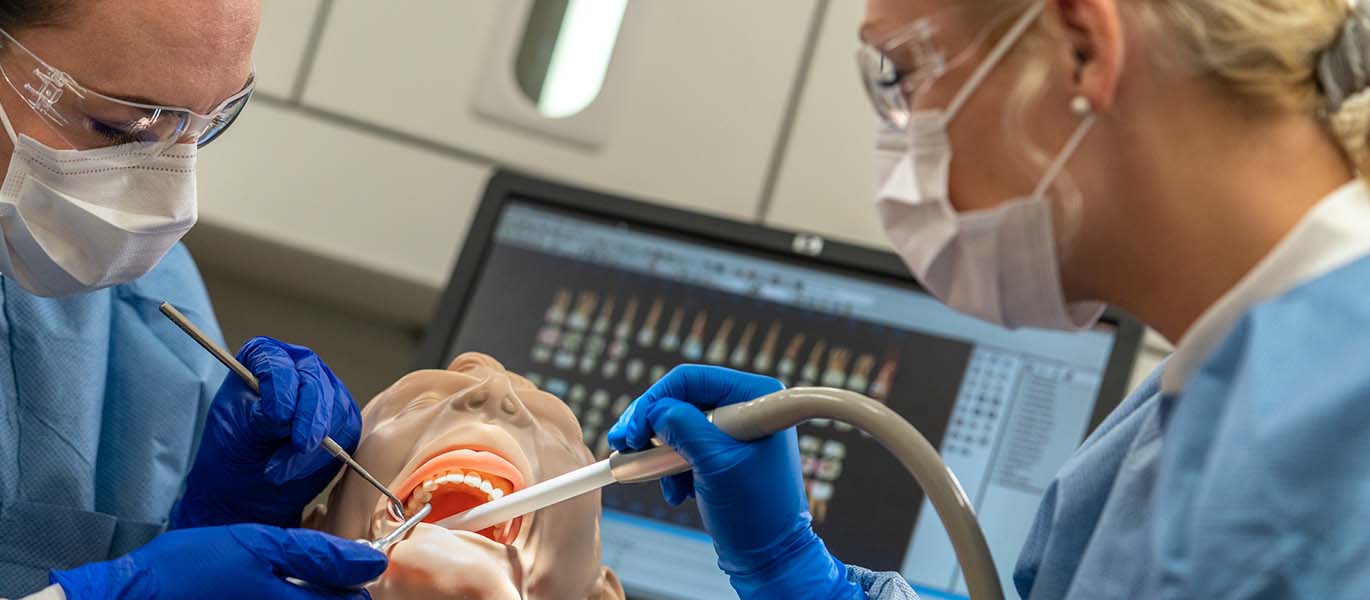
Dental Assisting program clinical coordinator and instructor earns advanced certification
Thursday, January 27, 2022
Kohlmeyer is one of 126 oral health professionals nationally who were the first to earn CDIPC certification.
 The Dental Assisting National Board and the Organization for Safety, Asepsis and Prevention has awarded Northeast Iowa Community College Dental Assisting clinical coordinator and instructor, Jeni Kohlmeyer, Dental Infection Prevention and Control (CDIPC) certification.
The Dental Assisting National Board and the Organization for Safety, Asepsis and Prevention has awarded Northeast Iowa Community College Dental Assisting clinical coordinator and instructor, Jeni Kohlmeyer, Dental Infection Prevention and Control (CDIPC) certification.
Kohlmeyer is one of 126 oral health professionals nationally who were the first to earn CDIPC certification on Dec. 29, 2021. The CDIPC certification is the first clinically focused dental infection control certification in the U.S. The exam is rigorous and requires demonstrating not only knowledge of infection control guidelines and standards, but also the analytical and critical-thinking skills to apply them in a variety of scenarios. Maintaining CDIPC certification requires a commitment to lifelong learning and staying up-to-date on infection prevention and control knowledge.
Kohlmeyer learned of the certification opportunity in Spring 2018 while attending the Organization for Safety, Asepsis and Prevention boot camp, a fast-paced, foundational-level educational course presented by national and international experts in dental infection prevention and patient safety. The exam was administered for those who met the testing criteria and were eligible. Kohlmeyer earned the certificate as a registered Subject Matter Expert and evaluated each test question for accuracy, difficulty and determining the exam pass point.
“There are different routes to become eligible to test, but the best route is through having a formal dental assisting education as well as being a Certified Dental Assistant (CDA). Becoming a CDA is a national level certification that shows you are an assistant with a higher level of competency, efficiency, reputation and credibility,” Kohlmeyer said. “Being on the cutting edge and always learning more about the world of infection prevention and control is vital in our profession.”
Dental Assisting program faculty encourage students to gain knowledge in all aspects of their profession, Kohlmeyer emphasized.
“Obtaining continuing education beyond the ‘required’ areas will keep students excited about their profession and makes graduates a valuable asset to any employer in the dental field,” she said.
For more information, visit dentalinfectioncontrol.org. To learn more about the Dental Assisting program at NICC, visit www.nicc.edu/dentalassisting.
